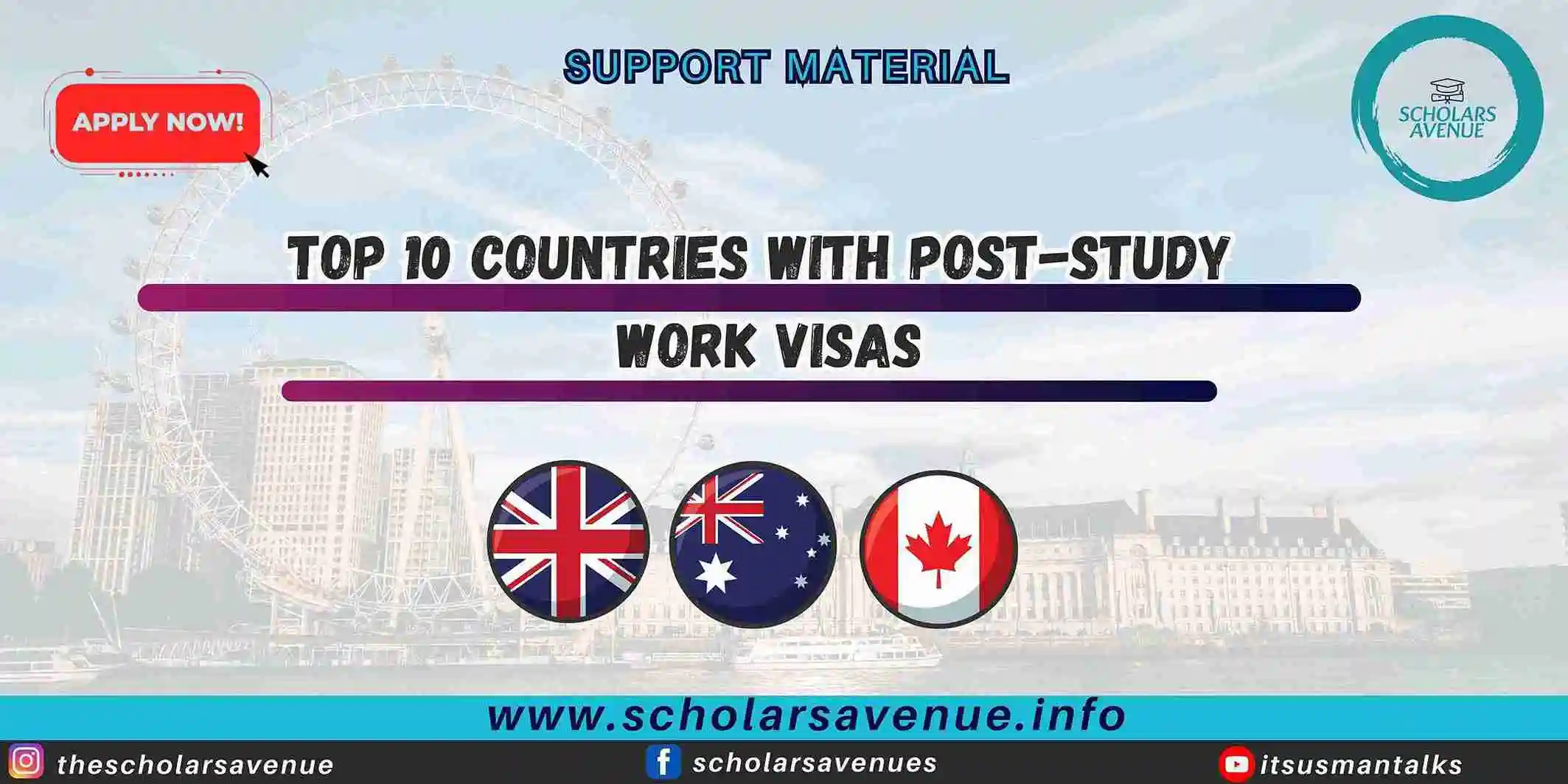The United States remains one of the top destinations for international students due to its world-class universities, diverse academic programs, and promising career opportunities. Whether you’re aiming for a bachelor’s, master’s, or PhD, the process of applying to US universities requires careful planning. From academic qualifications to visa applications, understanding the essential requirements is crucial for a smooth admission process. This study in USA guide will walk you through the key prerequisites, ensuring that you meet all the necessary criteria for studying in the USA without unnecessary hurdles.
Pursuing higher education in the USA involves more than just securing admission to a university. International students must navigate various steps, including standardized tests, financial proof, English language proficiency, and visa applications. Each requirement plays a vital role in determining eligibility and increasing your chances of acceptance. By following this study in USA guide, you’ll gain a clear understanding of what it takes to become an international student in the USA, allowing you to prepare well in advance and confidently take the next step toward your academic journey.
Also check, UN ECOSOC Youth Forum 2025 in New York USA
Key Requirements to Study in USA Guide
1. Academic Qualifications
Your academic background is a fundamental requirement for studying in the USA. Universities assess your previous education based on transcripts, GPA, and relevant coursework.
- Undergraduate Programs: High school diploma or equivalent, with required subjects depending on the major.
- Graduate Programs: A bachelor’s degree from a recognized institution, sometimes requiring relevant work experience or research background.
- PhD Programs: A master’s degree (in most cases) and a strong research proposal.
2. English Language Proficiency
Since English is the primary language of instruction, international students must prove their proficiency through standardized tests such as:
- TOEFL (Test of English as a Foreign Language)
- IELTS (International English Language Testing System)
- Duolingo English Test (accepted by some universities)
- Some institutions offer exemptions if English was the primary language of instruction in your previous studies.
3. Standardized Tests
Depending on the program and university, students may need to take additional tests:
- Undergraduate: SAT or ACT (not always mandatory but can enhance applications).
- Graduate: GRE (Graduate Record Examination) or GMAT (Graduate Management Admission Test) for business schools.
- Medical and Law Programs: MCAT for medical schools, LSAT for law schools
Also check, CNIO Summer Training Program in Spain 2025
4. Financial Proof and Scholarships
International students must demonstrate they can afford tuition, accommodation, and living expenses.
- Bank Statements: Universities may ask for proof of funds covering at least one year of expenses.
- Scholarships & Financial Aid: Various institutions offer merit-based and need-based scholarships.
- Assistantships: Graduate students can apply for research or teaching assistant positions to cover costs.
5. Student Visa (F-1 Visa)
Securing a visa is a crucial step in studying in the USA, and this study in USA guide provides essential details on obtaining an F-1 visa smoothly.
- Receive an I-20 Form from your university after acceptance.
- Pay the SEVIS Fee (Student and Exchange Visitor Information System).
- Schedule and attend a visa interview at the US embassy or consulate.
- Provide proof of financial support, academic transcripts, and intent to return to your home country after studies.
6. Health Insurance
Most universities require international students to have health insurance.
- Some institutions offer their own plans, while others allow students to purchase external insurance.
- Ensure your coverage includes medical emergencies, hospital visits, and general healthcare needs.
Also check, Fully Funded Einstein Fellowship Program in Germany 2026
7. Application Documents
Each university has specific requirements, but common documents include:
- Completed Application Form
- Personal Statement or Statement of Purpose (SOP)
- Letters of Recommendation (LORs)
- Resume or CV (for graduate applicants)
- Portfolio (for art, architecture, or design programs)
Additional Requirements for Studying in the USA
1. Application Deadlines & Early Planning
- US universities have different intakes (Fall, Spring, and Summer).
- Application deadlines vary, typically between 6-12 months before the semester begins.
- Applying early increases chances of acceptance and financial aid opportunities.
2. Credential Evaluation
- Some universities require an evaluation of foreign academic transcripts by agencies like WES (World Education Services) or ECE (Educational Credential Evaluators).
- This ensures that international qualifications match US education standards.
3. Housing & Living Arrangements
- Students need to arrange accommodation in advance, either on-campus or off-campus.
- On-campus housing is often limited, so applying early is recommended.
- Off-campus housing requires budgeting for rent, utilities, and transportation.
4. Pre-Departure Preparations
- Attend a pre-departure orientation offered by US embassies or universities.
- Arrange travel documents, flight tickets, and airport pickup if needed.
- Ensure you have emergency funds and a financial plan for unexpected expenses.
5. Employment Regulations & Work Opportunities
- International students on an F-1 visa can only work on-campus (max 20 hours per week during semesters).
- CPT (Curricular Practical Training) and OPT (Optional Practical Training) allow work experience related to your field of study.
Final Thoughts
Studying in the USA is a rewarding journey that requires careful preparation. From securing admission to obtaining a visa and adapting to a new culture, each step plays a crucial role in your academic experience. By following this study in USA guide, you can ensure a smooth transition and maximize your chances of success. Planning ahead, staying informed about university requirements, and seeking available financial aid options will help make your dream of studying in the USA a reality. If you have any questions or need further guidance, don’t hesitate to reach out to university admissions offices or student advisors. Good luck with your academic journey!
Looking to maximize your chances of acceptance?
Consider using our Professional Services to polish your application and stand out from the crowd.
For detailed videos on relevant opportunities check out:
Frequently Asked Questions (FAQs)
What are the basic requirements to study in the USA?
The basic requirements include academic transcripts, standardized test scores, English proficiency test results, financial proof, and a student visa that are covered in this study in USA guide
How much does it cost to study in the USA?
The cost varies depending on the university and program. On average, tuition fees range from $20,000 to $50,000 per year, with additional living expenses.
Can I study in the USA without IELTS or TOEFL?
Some universities waive the requirement if you have studied in English before or accept alternative tests like the Duolingo English Test.
How can I get a scholarship to study in the USA?
Many universities offer merit-based and need-based scholarships. You can also apply for external funding programs.
Can international students work while studying in the USA?
Yes, students on an F-1 visa can work on-campus for up to 20 hours per week during semesters and full-time during breaks. Off-campus work is allowed under CPT and OPT programs.









